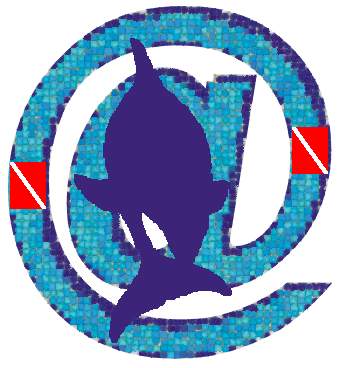 |
Intern@tion@l Dre@m.net |
 |
Intern@tion@l Dre@m.net |
Maybe it started in the pool after a morning of diving--a nagging ache in the knee. Must have bumped it on the ladder. Later, you experienced itching skin and slight dizziness. Bad sashimi for lunch? By the time you started feeling unusually fatigued and felt tingling in your feet, it was hard not to wonder: Could I be bent?
If you experience any of these symptoms within 24 hours of a dive, it's urgent that you seek help immediately. Decompression illnesses (DCI), a category of diving-related medical problems including decompression sickness (DCS) and arterial gas embolism, are easiest to treat when they are caught early. So how do you go about getting treatment?
Recognizing the symptoms and admitting the possibility that you might be bent is the hardest step of all, says Daniel Nord, medical services coordinator of Divers Alert Network (DAN). Most bent divers fail or refuse to recognize the early symptoms of Type I DCS--joint or limb pain often associated with itching or skin rash. Mild symptoms of neurological Type II DCI, such as nausea and vomiting, dizziness and extreme fatigue, may also be ignored. Denial allows the disease to progress and, unfortunately, most divers wait until the more serious Type II symptoms hit--numbness and tingling in the extremities, slurred speech, weakness, paralysis, loss of bladder or bowel control--before calling for help.
If you suspect any type of decompression illness, start breathing 100 percent oxygen as soon as possible. Oxygen kits are standard equipment on every reputable dive boat in operation today. Pure oxygen is first aid for any suspected decompression illness because it increases the rate of nitrogen elimination and decreases the size of offending nitrogen bubbles--buying you precious time until you can get medical help.
"If you've got symptoms suggesting DCS, the first thing to do is be medically assessed," says Nord. DCI symptoms can be similar to other conditions including strokes and heart attacks, so it's important to know exactly what you're dealing with before seeking hyperbaric treatment.
Whom you call depends on where you are. In most cases, your best bet is to call or get to the local emergency room--not the local chamber. Many hyperbaric chambers are not staffed full-time and may require a referral from a physician or DAN before accepting patients.
In the United States, calling for medical help is as easy as dialing 911 or the local EMS number. If you're planning to dive in other countries, Nord recommends that you find out ahead of time what emergency services and facilities are available and how to activate them. Carry this information in your dive log so it's with you whenever and wherever you need it. Important numbers to know include ambulance services, emergency medical facilities, fire/rescue departments and coast guard or marine rescue services.
DAN's information line (919-684-2948, ext. 222) is open during regular business hours and can help you identify local medical services and facilities in many popular dive destinations. In remote locales, your dive store, resort or live-aboard boat crew should be able to provide you with the name, location and contact information of local emergency services.
DAN's emergency line (919) 684-4dan or (919) 684-4326--you can even call collect in emergencies--is staffed by physicians, EMTs and nurses who are on call 24 hours a day. They can help calm your fears, assess your symptoms for the likelihood of DCI, and even guide you to the nearest medical help. One thing they can't do over the phone is make a diagnosis. That's why it's important to get qualified local medical assistance.
Once you've accessed local medical help, DAN staff can advise them on diagnosis and treatment options. If your caregiver seems reluctant to consult DAN, it may help to explain that the network is an integral part of the Duke University Medical Center.
When a diagnosis is made, DAN can arrange chamber treatments through a global network of more than 300 affiliated hyperbaric facilities. They can also arrange transportation and even emergency evacuation. While these services are available to non-members, divers who do not carry DAN insurance will be responsible for all evacuation and treatment costs.
